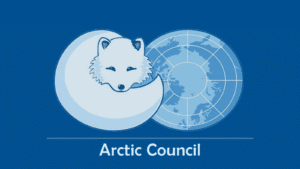From 2013 to 2018, India invested $12m in Arctic research, and as the 3rd-largest energy consumer with a fast-growing economy and vibrant private sector, natural resources in the region represent an area of significant commercial interest.
India’s state-owned enterprises have entered into agreements with ROSNEFT, Novatek and Gazprom. In 2002, the state-owned ONGC Videsh (OVL) bought a 20 percent stake in the Sakhalin-I project on Sakhalin Island in the Russian sub-Arctic North Pacific.This was India’s first consortium investment in oil and gas outside its borders, and today the project is providing rich dividends for the company along with other operating partners. In 2008 OVL spent more than 2.5 billion USD purchasing a UK listed firm with energy interests in sub-Arctic Siberia, however it has been underperforming with the fall in global oil prices.
In 2014, the implementation of Western sanctions cut Vladimir Putin’s 2014 trip to New Delhi short, leaving the first Memorandum of Understanding on partnered Arctic hydrocarbon exploration in limbo. However, in 2015, India took part in a number of bilateral and multilateral meetings on the potential for cooperation in oil and natural gas production, including with Russia and China, and in February 2015 the three countries met in Beijing to discuss further cooperation. In 2016, a consortium of Indian Oil Corp. Ltd, Oil India Ltd. and a unit of Bharat Petroleum Corp Ltd purchased a 29.9% stake in the development of the Srednebotuobinskoye oil and gas condensate field through LLC Taas Yuryakh Neftegazodobycha, a Rosneft subsidiary.
Notably, India received its first liquefied natural gas (LNG) shipment from the Russian Arctic in March 2018. The shipment came through the Northern Sea Route and was made possible by the independent Russian producer – Novatek’s plant at Yamal. Furthermore, in June 2018, India received its first LNG shipment as part of the Russian state-backed energy company Gazprom’s twenty-year import deal with the Gas Authority of India, Ltd, also from a plant in Yamal in the Arctic.
In a business summit held in October 2018 in New Delhi, the Russian President, Vladimir Putin, during his two day visit to India, was recorded stating that Russia and India are considering exploring opportunities for joint development of oil fields in Russian Arctic territory.
Since 2018, the “exploration of opportunities” Putin described has materialized into diplomatic advancements and investments by Indian companies in Arctic resources in 2019 and 2020. In September 2019, the annual summit between India and Russia directly preceded the fifth Eastern Economic Forum in Vladivostok. Indian Prime Minister Narendra Modi was the guest of honor, and became the first Indian PM to visit the Russian Far East. In a joint statement issued during the summit Modi and Putin welcomed the intent of the Indian side to “expand their economic and investment presence in the Russian Far East and Siberia”, and noted scope for “immense cooperation in the field of non-nuclear energy” in the Russian Arctic. They celebrated successful joint developments between Rosneft Oil Company and a consortium of Indian oil and gas companies in implementing the Vankorneft project in Eastern Siberia and Taas-Yuryakh Neftegazodobycha project in Yakutia. In the statement, they also agreed to cooperate in the supply of coking coal from Russia to India, agreed to pursue the development of a maritime route between the ports of Vladivostok in Russia and Chennai in India, and said that they expect bilateral cooperation in hydrocarbon development to reach new heights in the next five years.
Modi’s visit was preceded by the also unprecedented visit to Vladivostok of four Chief Ministers of Indian states and representatives from over 120 Indian companies, led by the Commerce and Industry Minister of India, and followed by a series of commercial agreements during and after the Eastern Economic Forum. Specifically, Indian firms H-Energy and Petronet signed agreements with Novatek to buy LNG from the Russian Arctic Yamal and Arctic LNG-2 plants, and for future cooperation on natural gas projects. State-run OVL signed an agreement with Rosneft to acquire an additional 11% stake in Vankorneft, a subsidiary of Rosneft which has a license to produce hydrocarbons from the Vankor cluster in Siberia. This will raise OVL’s stake to 26% stake in Vankorneft, and once the deals are completed the combined Indian holding in the production company will be 49.9%.
In October 2019, Vostok Coal entered talks with representatives of state-owned Coal India – the largest coal producing company in the world – which expressed interests in both purchasing coal and in a joint venture in the Vostok Oil project. The project will involve the development of three fields on the Taymyr Peninsula and the building of a 600 km pipeline to the Arctic Ocean. In January 2020, India’s Minister of Oil, Natural Gas and Steel, Dharmendra Pradhan, confirmed that there would be Indian participation in Vostok Oil “without a doubt,” and Russia’s Foreign Minister Sergey Lavrov stated that through Vostok Oil, India would become “the first non-Arctic state that engages in mineral extraction in the Arctic.”


